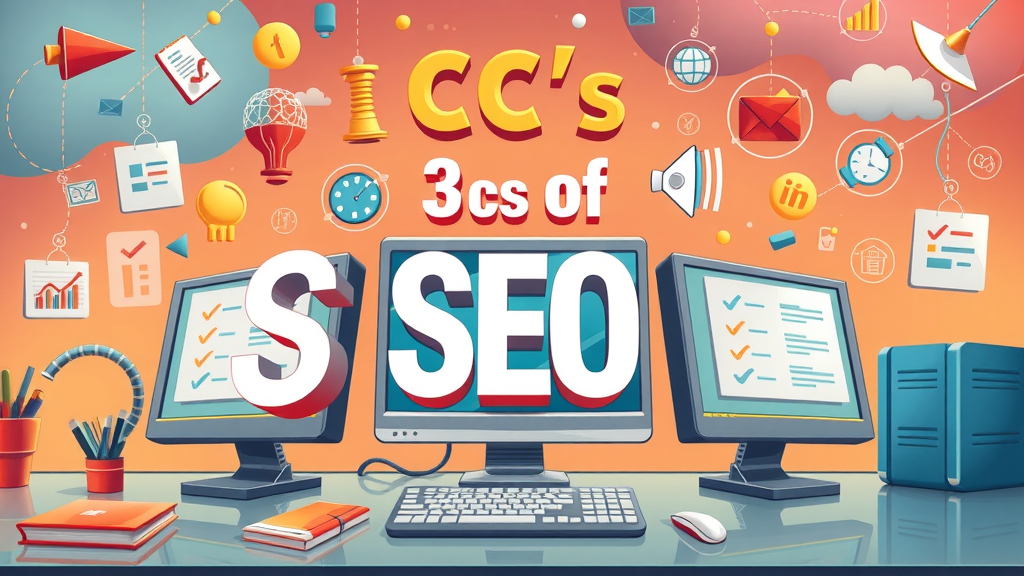Over 46% of all Google searches seek local information, yet less than 30% of small businesses actively invest in SEO? Let’s uncover why SEO for small businesses is no longer optional—and how it can launch your business ahead of the competition.
In this comprehensive guide to SEO for small businesses , you’ll discover how to master local seo, leverage your google business profile, and build a search engine optimization plan that makes your business impossible to ignore.
What You’ll Learn in This Guide
Why SEO is mission-critical for small businesses in 2024 and beyond
Actionable strategies for dominating local search results
How to set up, optimize, and leverage your Google Business Profile
Proven content and keyword tactics for local visibility
Real-world case studies and FAQs on small business SEO

Why SEO for Small Businesses Matters: Breaking Through the Local SEO Noise
Understanding SEO for Small Businesses in Today’s Digital Landscape
Explore how small business seo levels the playing field against larger brands by targeting local search and organic traffic.

SEO for small businesses is the single most powerful way to be discovered by potential customers actively searching for your products or services. In today’s digital marketplace, established local SEO strategies ensure your business rises above big-box competitors—especially when you focus on local search and organic traffic that convert to loyal clients.
By mastering business SEO fundamentals, small business owners can stretch their marketing budgets while reaching more engaged, local audiences. Unlike expensive traditional advertising, search engine optimization enables you to show up right where customers need you—on search engine results pages, Google Maps, and voice search. For many small businesses, this is the difference between getting found or fading into the background.
Best of all, the results are measurable. Implement the right SEO strategy and you can monitor your rise in local search results , increased web visits, and contact form submissions, outperforming national competitors who have overlooked local intent.
The Cost of Being Invisible: What’s at Stake for Small Businesses Lacking Effective SEO
Practical examples illustrating lost revenue and missed opportunities without a robust SEO strategy.
For small businesses, being invisible on the web is a recipe for lost revenue. Imagine a boutique bakery on Main Street; without local seo , its delicious offerings are buried beneath national chains in search engine results—even as locals search “best bakery near me.” Missed opportunities multiply when your business profile doesn’t appear on Google Maps, or when outdated information leads customers elsewhere.
Neglecting to invest in business SEO means ceding ground to competitors who optimize for local intent, location-based keywords, and Google Business Profile. One case study showed a local hardware store gaining $75,000 in new sales in a single year simply by appearing in local search results. In contrast, a similar store lost customers to nearby Home Depot and Lowe’s—despite offering better service—because they simply weren’t visible where it counted.
The risk of missed growth is real, and in today’s search-first economy, a robust SEO strategy is the safety net every small business needs.
Core Elements of SEO for Small Businesses: Building Your Local Business Foundation

Keyword Research for Small Business SEO Success
Step-by-step guide to strategic keyword research, including how to uncover local intent and outperform on google search.
Effective keyword research sits at the foundation of any successful small business SEO strategy. Start by identifying phrases your potential customers type into Google—these are often highly specific, such as "plumber in Smithtown" or "best gluten-free bakery near me." Leverage tools like Google Keyword Planner, Moz, or SEMrush to discover search volumes and gauge competition for both broad and location-based keywords .
Focus on keywords with local intent ("near me", city names, or local neighborhoods) that align with your offerings. Map out a keyword plan where each service or product receives its dedicated page optimized with that phrase appearing in titles, headings, and content. This helps search engines understand your relevance for each search query, increasing your chance of ranking higher in local search results .
Step-by-step: Brainstorm with your team, research competitor rankings, validate with search volume tools, and filter for actionable, buyer-intent phrases. Maintaining a regularly updated keyword list is crucial for long-term success in local seo .
Crafting Quality Content that Elevates Small Businesses in Search Engines
Tactics for creating content optimized for search engines and users using business seo best practices.

Quality content is the magnet that draws visitors and convinces search engines your business is a valuable resource. Begin by answering common customer questions, sharing local stories, and providing actionable guides that position your brand as the community’s expert. Blog posts, FAQ pages, and service area landing pages are golden opportunities for business SEO outreach.
Optimize every piece by naturally inserting your main keyword and related terms into titles, meta descriptions, image alt text, and throughout the page without stuffing. Use internal links to guide visitors to relevant service pages or your contact form, keeping their journey seamless. This approach signals authority to search engine algorithms while meeting the needs of real people—win-win!
Pair quality content with multimedia—images, charts, videos—and you’ll engage users while reducing bounce rates, further boosting your position in engine results.
Optimizing Your Business Profile and Google Business Profile
How to claim and optimize your google business profile so your local business shows up in local search results.
Your Google Business Profile is the modern storefront window for your local business . Claim your profile as the business owner and ensure every section is complete—add accurate name, address, phone number (NAP), business hours, service categories, and a compelling business description with strategic keywords.
Upload high-quality photos and encourage customer reviews, as both heavily influence visibility and trust. Update your business profile regularly with new posts, offers, and responses to feedback. Make sure your information matches across all platforms—discrepancies confuse search engines and can lower your local search performance.
Verification is key. Once claimed, verify ownership and optimize with attributes like wheelchair accessibility, online appointments, and products or menus. An optimized profile improves your odds of appearing in the coveted “local 3-pack” on Google Search and Maps.
Key On-Page SEO Elements for Small Businesses
Element |
Explanation |
Benefit |
|---|---|---|
Meta Tags (Title, Meta Description) |
Descriptive, keyword-rich tags summarizing page content |
Improves click-through rates and communicates page intent to search engines |
Headings (H1/H2/H3...) |
Structured content hierarchy using relevant keywords |
Enhances readability and helps search engines index content topics |
Image Optimization |
Descriptive file names, alt text, and reduced file size |
Improves accessibility, speeds up page loads, supports SEO rankings |
Internal Links |
Links to other pages within your website |
Improves site navigation and distributes SEO authority |
How Local SEO Drives Growth for Small Businesses
Local Search Ranking Factors That Small Businesses Can Control
Breakdown of top local seo tactics: citations, NAP consistency, location-based keywords, google search console insights.

Small businesses have significant control over many local SEO ranking factors. Citations —mentions of your business on directories like Yelp, Yellow Pages, and industry-specific sites—validate your local presence. Ensure NAP (name, address, phone number) consistency across all channels; conflicting information confuses search engines and diminishes your authority.
Implement location-based keywords throughout your site—think repeating your city, neighborhood, or region in headings and body copy. Use the Google Search Console to monitor which queries trigger impressions and clicks in your area, then refine your content accordingly.
These proactive strategies help boost your local business in the search results, attract organic traffic , and help you stay visible to ready-to-buy customers nearby.
Leveraging Google Search Console for Business Owner Insights
How business owners and managers can use search console data to monitor seo strategy and outrank local competitors.
Google Search Console is your real-time feedback loop for small business SEO . It tracks impressions, clicks, search queries, and technical issues affecting your website. Smart business owners use this data to adjust their seo strategy , monitor progress, and fix errors that might keep their local business from ranking.
Dive into the “Performance” report to see which keywords drive traffic. Cross-check with competitor data to spot gaps or opportunities. Use the “Coverage” tab to quickly address site errors or pages not indexed. These insights enable proactive tweaks, such as enhancing meta descriptions or revising underperforming web pages with more relevant keywords.
Monitoring your search engine presence with Search Console ensures you continue edging out local competitors—one data-driven improvement at a time.
Building Authority: The Role of Backlinks in Small Business SEO
Best practices for earning authoritative links for small businesses and local business websites.

Earning backlinks—links to your site from credible, relevant sources—remains a pillar of small business SEO . Local press, community partner sites, and business associations are fertile ground for link-building. Consider sponsoring neighborhood events, joining local chambers of commerce, or hosting a community initiative; these relationships often translate into high-quality links.
Guest posting on related blogs and sharing press releases with local media further boost your search engine optimization credibility. Remember, it’s about quality over quantity: one strong link from a reputable local website can outweigh dozens from irrelevant sources.
As search engines register these endorsements, your local business rises in the rankings, driving both credibility and visibility in local search results.
Video: Real Small Business SEO Case Study—Before and After Optimization
(Insert explainer video here) — Watch as a real small business transforms through targeted local seo strategies, climbing from obscurity to first-page prominence on search engine results .
SEO Strategy Blueprint for Small Businesses: From Setup to Ongoing Success
Step-by-Step SEO Strategy for Local Business Growth
A clear action plan covering competitor analysis, business profile setup, local search optimization, and ongoing monitoring.

Dominating local search as a small business involves a structured, repeatable process. Start with a thorough competitor analysis: identify who’s ranking for your target keywords in Google Search and audit their strengths and weaknesses. Then, claim and perfect your business profile on Google and other widely used local directories.
Next, optimize your website for on-page SEO—implement structured headings, mobile responsiveness, local schema markup, and robust internal linking. Produce a steady stream of quality content , tying blog posts and service pages to community issues and events, infusing them with relevant local keywords for maximum visibility.
Lastly, set up tracking—Google Analytics, Google Search Console, and conversion tracking—to monitor your progress, fixing issues and iterating based on the latest search engine updates. This ongoing cycle of optimization is the secret to sustainable local business growth.
Content Calendar and Planning for Small Businesses
Sample content calendar with seo strategy milestones for small businesses.
An editorial calendar helps keep your SEO efforts consistent and organized. Schedule regular blog posts (bi-weekly or monthly), plan seasonal content (holiday promotions, local events), and set reminders to audit your Google Business Profile for updates. Tie each content component to an SEO goal—like targeting a new keyword or attracting reviews.
Map out your calendar with deadlines for content drafts, keyword research refreshes, and periodic reviews of analytics data. Staying organized ensures your local business remains top-of-mind for both customers and search engines .
SEO Budget Planning Table for Small Businesses
SEO Approach |
Estimated Monthly Cost |
Pros |
Cons |
|---|---|---|---|
DIY SEO |
$0 - $300 |
Cost-effective, full control |
Steep learning curve, time-intensive |
In-House SEO Staff |
$2,500+ |
Dedicated expertise, customized strategy |
Higher ongoing payroll, benefits |
SEO Agency |
$500 - $2,000 |
Professional knowledge, faster results |
Less hands-on, requires trust |

Video: Walkthrough—Setting Up Your Google Business Profile for Local SEO
(Insert instructional video here) — Step-by-step setup guide, from verification through optimization, to outperform your local competitors in search results .
Common SEO for Small Businesses Pitfalls (and How to Avoid Them)
List of frequent mistakes, including neglecting local business citations, keyword stuffing, ignoring mobile optimization, and failure to monitor with google search console.
‘The best place to hide a dead body is page two of Google search results.’—Anonymous SEO Expert

Even the most well-meaning business owners trip up on small business SEO basics. Some neglect to maintain consistent citations across directories, diluting their authority in local search. Others overuse keywords— keyword stuffing —which can trigger search engine penalties.
A frequently overlooked flaw is failing to optimize for mobile devices, despite the fact that most local seo traffic is mobile. Lastly, ignoring google search console means missing alerts about site errors or ranking drops.
The antidote: Audit often, aim for natural keyword use, ensure mobile responsiveness, and make analytics your new best friend.
People Also Ask: Top Small Business SEO Questions Answered
Does SEO really work for small businesses?
SEO for small businesses is highly effective when strategies are tailored to local search, user intent, and the unique offerings of the business. SEO results may take time but compound over the long run, bringing sustainable growth and increased organic traffic.
How much should SEO cost for a small business?
SEO costs vary based on scope and provider, but typical budgets range from $500 to $2,000 per month. DIY and hybrid options can lower costs, but agency expertise often yields faster, more measurable results.
What are the 3 C's of SEO?
The three C’s are Content, Code, and Credibility: high-quality content, optimized technical elements, and authoritative links build a successful SEO foundation for small businesses.

Is paying for SEO worth it?
Investing in SEO for small businesses yields ongoing ROI, especially when compared to short-term paid ads. Organic search builds brand equity and connects your business with high-intent local customers.
Maintaining Your SEO for Small Businesses: Monitoring, Measuring, and Evolving
Setting KPIs and Measuring SEO for Small Business Performance
Define measurable business seo goals using analytics, conversion tracking, and ongoing reviews for steady improvement.

Define key performance indicators (KPIs) before launching your SEO strategy —think web traffic, contact form completions, or ranking improvements for specific local search terms. Use web analytics and call-tracking to directly link your efforts with business outcomes.
Ongoing measurement isn’t optional. Schedule monthly reviews to note trends, spot dips, and double down on what’s working. This data-backed approach empowers businesses to continually refine their strategy, pursue what works, and pivot away from what doesn’t.
Continuous Improvement: Adapting Your SEO Strategy in Changing Markets
Tips for adjusting SEO as search engines, business goals, and local markets shift.
The world of search engine optimization never stands still. Regularly update your keywords, content, and business listings as your market evolves. Stay informed about changes in Google’s algorithms, shifts in consumer behavior, and new technologies—mobile-first indexing, voice search, and rich snippets.
Foster a culture of learning within your business or team, ensuring your small business SEO efforts remain as dynamic as your community.
Video: Monthly SEO Audit Walkthrough for Business Owners
(Insert video walkthrough here) — Learn how to perform a quick, effective SEO health check to uncover new opportunities and defend your rankings.
Real-World Results: Small Businesses Winning with SEO
Case Studies of Local SEO Success
Stories and quick statistics showing how local seo has transformed visibility and sales for real businesses.

A Long Island florist saw a 2x boost in walk-in customers within three months after optimizing their Google Business Profile and earning backlinks from local bloggers. A neighborhood auto repair shop achieved 74% more website leads within a year by refining their keyword plan and posting before/after photo galleries tied to routine services.
Local SEO success is measurable, sustainable, and replicable. These wins aren’t outliers—they’re the new norm for small businesses leveraging smart search engine optimization strategies.
Quotes from Small Business Owners on the Power of SEO
‘We doubled our walk-in traffic within six months thanks to local SEO improvements!’—Long Island Retailer
Frequently Asked Questions about SEO for Small Businesses
Q: How quickly can a small business expect to see SEO results? A: Most businesses notice improvements within three to six months, depending on their competition and initial website condition.
Q: What’s the most important SEO tip for small businesses? A: Claim, verify, and optimize your Google Business Profile—this alone can lead to a significant lift in local visibility.
Q: Should I hire a pro or do SEO myself? A: If time and expertise are limited, hiring a local seo expert ensures best results; DIY can work for businesses with savvy team members and patience.
Small Business SEO: Your Next Steps to Local Search Success
SEO for small businesses is an ongoing investment, but one with enduring impact. Begin by auditing your current presence, refining your google business profile, and building quality content for customer-driven organic traffic. Continuous learning keeps you ahead in search engine optimization.
Ready to make waves on Long Island? Let’s chart your course today! Call 631 629 5553
Action Steps: Audit your web presence, update your business profile, publish new content regularly, and monitor results—take charge of your future on Google today.
To enhance your understanding of SEO for small businesses, consider exploring the following resources:
“Top SEO Tips for Small Businesses to Grow Your Website” : This article provides actionable strategies to boost your website’s visibility and attract more traffic, including setting up Google Analytics, optimizing your Google Business Profile, and conducting thorough keyword research. ( web.com )
“8 SEO Tips for Small Businesses” : This resource emphasizes the importance of high-quality content, optimizing site architecture, and claiming your business listings to improve search engine rankings. ( builtin.com )
These guides offer practical steps to implement effective SEO strategies tailored for small businesses, helping you enhance your online presence and stay competitive in local search results.
 Add Row
Add Row  Add
Add 




Write A Comment